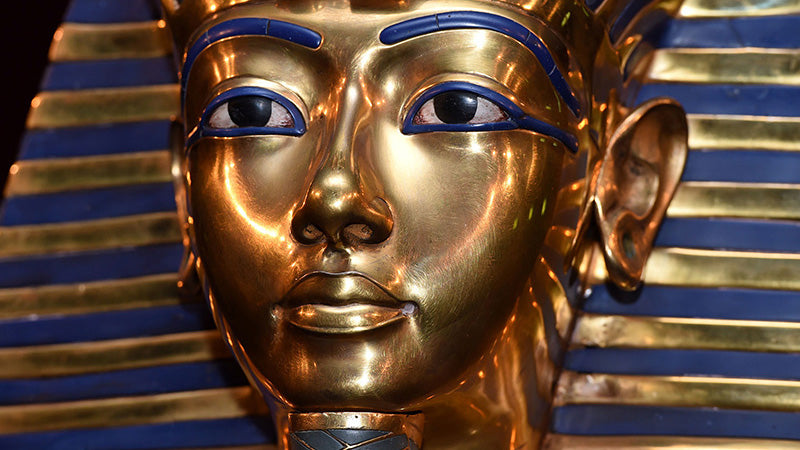Where to even begin telling the tales of this iridescent rock?

Girl with a Pearl Earring, Vermeer.
Since the early days of human civilization, Lapis Lazuli, or Lapis for short, has been desired by Egyptian Pharaohs and Roman Emperors. It was Cleopatra’s favorite eye shadow color. It also helped Dutch art Master Vermeer to create his captivating painting Girl with a Pearl Earring, which inspired Tracy Chevalier’s novel and turned into a major movie adaption, starring Scarlett Johansson.
One of our Lapis Lazuli under the microscope.
Lapis Lazuli itself is not a mineral, but a semi-precious rock. It is composed of several minerals, mostly lazurite (25%-40%) that gives it its blue coloring. Lapis lazuli is one of the most valuable semi-opaque stones mined for its excellent take on polish to be used for jewelry and ornaments.

Lapis Lazuli mine in Afghanistan.
The myths surrounding Lapis are amongst the oldest in the world and originate from ancient empires such as Egypt and Byzantium. The best quality of Lapis comes from the Middle East, more precisely in the Badakhshan province in northeastern Afghanistan, where the precious stone has been mined for hundreds of years until today. Despite the geographical distances between these cultures, all of them considered Lapis Lazuli precious, spiritual and powerful.
One of our Lapis Lazuli raw stones before dial slicing.
The name Lapis comes from Latin meaning stone and Lazuli originates from the Persian word lajavard (Lazuli’s name in Persian).

Tutankhamun's jewellery, Cairo Museum.
Lapis Lazuli was a favorite amongst the elites in ancient Egypt, where judges wore amulets picturing Maat, the Egyptian goddess of truth and Pharaohs adoring themselves with this hypnotically blue stone in this life and the next one. Most prominently from this era, the funeral mask of Tutankhamun and his jewellery was richly decorated with lapis lazuli.

Michelangelo’s angels fly in his frescoes in Rome’s Sistine Chapel.
Along ancient trade-routes, Lapis Lazuli found its way to Europe throughout the middle ages where it was highly prized and admired for its stunning shades of blue. Its iridescent color let to it use as paint, just like it did centuries ago when Cleopatra used it for cosmetics. During the following Renaissance era, painters would ground the stone into powder, creating the the pigment ultramarine, the finest and most expensive of all blue pigments. Thanks to Lapis Lazuli (and the artists’ talent of course), Michelangelo’s angels fly in beautiful skies in his frescoes in Rome’s Sistine Chapel and Vermeer’s Girl with the Pearl earring manages to captivate us in her eyes thanks to the liveliness of her portrait (creating depth in a painting heavily relies on the use of blue).
Our 38mm Lapis Lazuli dials before assembly.
Due to its sky-blue appearance lapis has been known throughout centuries as the stone of the gods, send from heaven. In today’s belief, Lapis Lazuli is associated with wisdom, love and healing abilities.

We are truly excited to capture the character of the expressive Lapis in our new series of timepieces. Each Lapis Lazuli paints its very own picture of an iridescent blue night sky, encased in ion-plated gold case.

Lapis Lazuli is known as the birthstone of December and make excellent gifts to surprise someone special for his or her special day!




